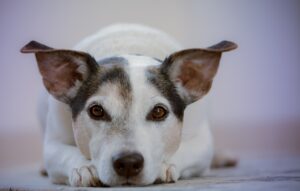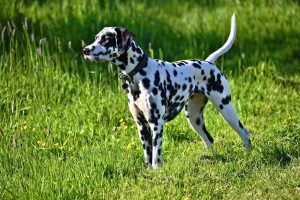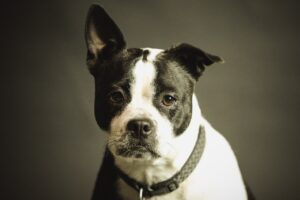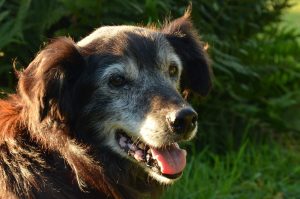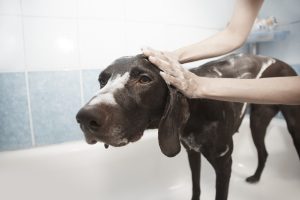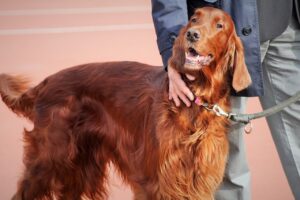When considering the addition of a canine companion to your home, understanding the breed’s temperament and potential health issues is crucial. This knowledge allows you to ensure that the dog’s needs align with your lifestyle and that you’re prepared for any health challenges that may arise. This is particularly important when it comes to breeds with a genetic predisposition to joint and hip diseases.
The Importance of Genetic Screening
Responsible breeders prioritize genetic screening for potential diseases. This is a vital step in promoting the health and longevity of specific breeds, especially those prone to joint and hip conditions. It’s recommended to engage in regular veterinary check-ups from puppyhood, particularly for breeds with a known predisposition to these conditions.
Breed-Specific Predispositions to Joint and Hip Diseases
Large Breeds: German Shepherd, Rottweiler, Labrador, English Bulldog
Hip Dysplasia: This condition is characterized by abnormal hip development, leading to joint pain and osteoarthritis. Symptoms include difficulty rising, limping, a “rabbit hopping” gait, and reluctance to climb stairs or furniture. While it primarily affects large and giant breeds, it can also occur in smaller breeds like the Lhasa Apso, German Spitz, and Poodle due to a combination of genetic and environmental factors.
Small to Medium Breeds: Poodle, Pinscher, Yorkshire, Shih Tzu, Chihuahua, Pug
Patellar Luxation: This condition involves the displacement of the kneecap, leading to knee destabilization. It’s more common in small breeds but can also affect medium and large dogs. Symptoms include limping, reluctance to put weight on the affected limb, and stretching the leg backwards to reposition the kneecap. This condition can lead to cranial cruciate ligament rupture.
Various Breeds: Pitbull, Akita, Bulldog, Lhasa Apso, Golden Retriever
Cranial Cruciate Ligament Rupture: This disease is caused by the fragility of the knee’s internal ligament, associated with joint inflammation. Symptoms include limping, swelling of the knee joint, and intermittent refusal to bear weight on the affected limb.
Herding Breeds: Border Collies, Collies, Great Danes, Rottweiler
Osteochondritis Dissecans: This condition involves abnormal shoulder development, leading to the formation of a cartilage flap within the joint. Symptoms include intermittent limping with the front limbs.
Various Breeds: Bernese, Boxer, Golden Retriever, Dalmatian, Swiss Shepherd, Rottweiler
Supraspinatus Tendinosis: This chronic disease affects the tendon of the supraspinatus muscle, leading to calcification, associated pain, and moderate to severe lameness of the front limb.
Long-Spined Breeds: Basset Hound, Dachshund, Lhasa Apso, Shih Tzu
Elbow Dysplasia: This condition involves poor formation of the elbow joint, leading to joint incongruence. Symptoms include limping with the front limbs and throwing the head and neck upwards when supporting the affected limb.
Toy Breeds: King Charles Cavalier Spaniel, Brussels Griffon
Chiari Like Syndrome or Syringomyelia: This condition involves the formation of edema within the medullary canal of the neck region, causing discomfort, pain, cervical stiffness, and locomotor difficulty.
Large Breeds: Great Dane, Doberman, Rottweiler, Dachshund, Saint Bernard, Dalmatian
Wobbler Syndrome: This condition involves spinal cord compression in the cervical region due to bone or intervertebral disc alterations, causing a staggering gait, head held low, and varying degrees of locomotor difficulty in all four limbs.
Schnauzers
Fibrocartilaginous Embolism: This condition acts similarly to a stroke, with obstruction of the vessels that irrigate the medulla with material from the intervertebral disc. Symptoms include paralysis of one or more limbs, which occurs very acutely and is not associated with pain afterwards.
Various Breeds: Dachshund, Basset Hound, Lhasa Apso, Shih Tzu, Pekingese, Poodle, Cocker, German Shepherd
Herniated Disc: This condition can affect various regions of the spine and is characterized by the loss of the intervertebral disc’s ability to cushion impacts and facilitate spinal movements. Symptoms include pain in the region, postural alteration, weakness, incoordination, dragging limbs, incontinence, and loss of sensation in the limbs.
Brachycephalic Breeds: Pug, French Bulldog
Hemivertebra: This condition involves bone malformation in the vertebrae, promoting spinal misalignment, which may or may not affect the locomotor functions of the back limbs.
All Dog Breeds
Bicipital Tenosynovitis: This is an inflammation of the tendon of the biceps brachii muscle, common due to compensatory overload of the front limbs, spinal problems, or orthopaedic injury to the back limbs.
Conclusion
It’s important to note that not all dogs of these breeds will develop these diseases, and dogs of other breeds can also experience these conditions. Regular veterinary monitoring from the beginning of a dog’s life is crucial. Don’t let the potential for these conditions deter you from choosing the breed of your dreams. In addition to genetics, several other factors can influence the development of locomotor diseases. To learn more about major joint diseases in dogs, check out this comprehensive guide.
Поради експертів щодо догляду за улюбленцями у 2026.
⚠️ We suggest that you read all the opinions on our portal and take note of them at your own discretion. Do not self-medicate! In our articles we collect the latest scientific data and opinions of authoritative experts in the field of health care. But remember: only a doctor can diagnose and treat.
The portal is intended for users over 13 years old. Some materials may not be suitable for children under the age of 16. We do not collect personal data from children under 13 without parental consent.We have a small request. We strive to create quality content about pet care, and we make it available for free to everyone because we believe everyone deserves accurate and useful information.
Advertising revenue only covers a small portion of our costs, and we want to continue to provide content without having to increase advertising. If you have found our content useful, please support us. It only takes a minute, but your support will help us reduce our reliance on advertising and create even more useful articles. Thank you!

